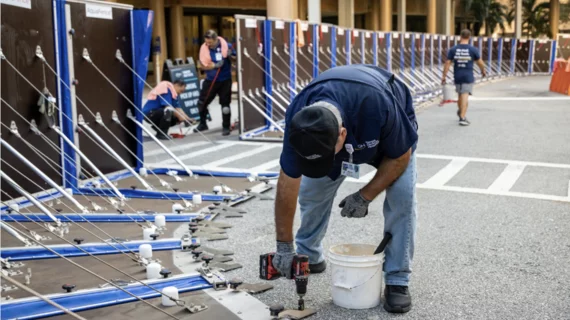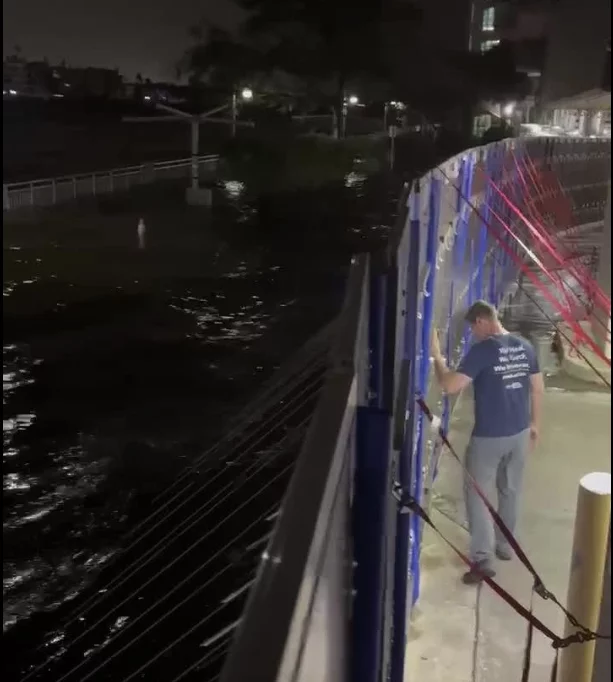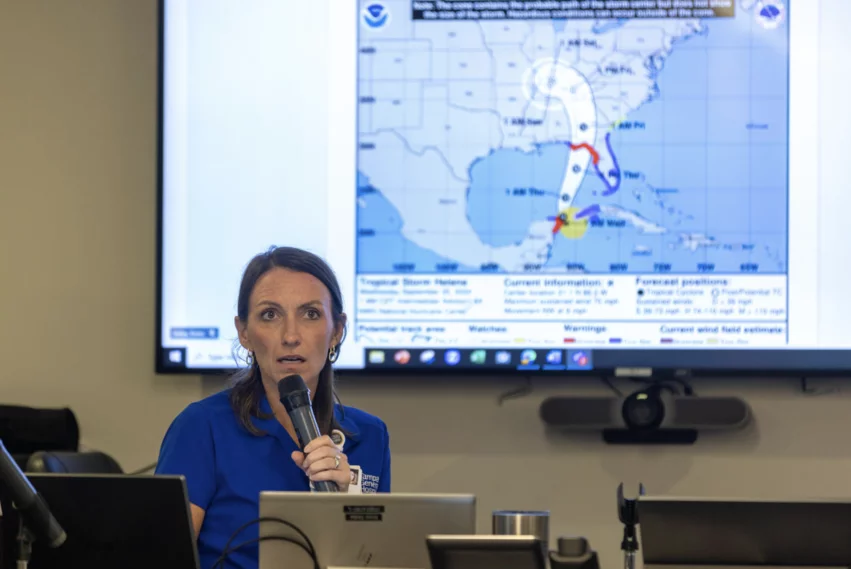Water fence erected to protect Tampa General Hospital during Hurricane Helene
Hurricane Helene brought heavy rains, strong winds and a storm surge to the Tampa Bay, Florida area on Sept. 27. Tampa General Hospital (TGH) remained operational during and after the storm, as clinical operations were unscathed by the rising water, thanks to a temporary "water fence" erected around the hospital in the days leading up to the hurricane making landfall.
The hospital facilities team installed AquaFence panels—a water-impermeable barrier that can withstand storm surges up to 15 feet above sea level—around the lower areas of the hospital campus to prevent water from flooding the hospital. The protection worked, and only the lower sections of the parking garage were flooded, despite the facility being located in vulnerable Tampa Bay.
The storm ended up making landfall much further north, closer to Tallahassee, but Tampa was still buffeted by the storm, resulting in flooding in low-lying areas. The hospital reported that all patients, physicians and team members remained safe. Power remained on, and the hospital was able to provide patient care.
Thanks to some pre-storm stocking, TGH also had plenty of supplies to support continued operations, even if supplychains were disrupted.
TGH is the region’s only Level I Trauma Center.



